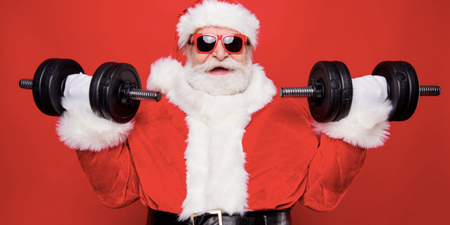Some people might have a certain perception of caffeine but it can also be of benefit to athletes in terms of their preparation and performance.
Caffeine is one of the most researched nutritional ingredients available to athletes. The use of caffeine dates back 10,000 years when the raw fruit of coffee plants was used to brew up drinks, later to be replaced with roasting coffee beans. Today, we can choose from a variety of caffeine sources, including:
|
Source |
Serving |
Dose (mg/serving) |
| Instant Coffee | 250ml/cup |
60-85 |
| Black Tea | 100ml/ tea bag |
10-80 |
| Costa Coffee Espresso | 25ml/shot |
157 |
| Starbucks Espresso | 25ml/shot |
51 |
| Hot chocolate | 250ml/cup |
5-10 |
| Coca Cola | 375ml/can |
49 |
| Pepsi | 375ml/can |
40 |
| Red Bull Energy Drink | 250ml/can |
80 |
| Optimum Nutrition Platinum PRE-Workout | 1 scoop |
160 |
| Optimum Nutrition Amino Energy | 2 scoops |
100 |
Caffeine in everyday life is generally consumed to provide a stimulatory effect to help us achieve more. But, it’s also been proven that caffeine can offer benefits to how we train. For athletes competing in team sports, individual events, endurance or weight based sports, caffeine can provide an advantage not only to the brain, but also to how muscles function.
It’s no surprise then that athletes regularly use caffeine as part of their nutritional strategy. In fact, it has been documented that 97 per cent of UK track athletes and cyclists use caffeine with the aim of improving race day performance.
To form a better idea of how caffeine may help you perform better, have a look at its benefits under the various categories below, while also checking out the guidelines on how and when caffeine should be consumed.
Caffeine in the body
Caffeine is known to target various organs, specifically the brain and the muscles. The reason for this is that caffeine binds to adenosine receptors, which are found throughout the body.
Adenosine is produced from the nervous system and is produced at a greater rate during exercise. Interestingly, these adenosine receptors are linked to greater pain perception, sleepiness, slower brain function, impaired physical movement and neurological activity. All of these responses to adenosine can increase the risk of early fatigue during exercise that could then lead to poor performance and skill completion – such as accuracy of passing, shots on target, lining up for a tackle – or simply processing calls for moves within a match.
Caffeine has a similar structure to adenosine and therefore is able to bind to adenosine receptors to block their negative effects during exercise. This has been shown to improve activity of certain areas of the brain that are linked to alertness and memory, and increase the ability of muscles to contract thereby improving endurance and power.
Caffeine and exercise performance
One of the first scientific studies to show the beneficial effects of caffeine on exercise performance was completed in 1972. In this study, cyclists received 330 mg of caffeine as coffee or a decaffeinated coffee one hour before exercise. The caffeine in the coffee allowed the cyclists to exercise for 15 minutes longer than those given decaffeinated coffee.
Since this early work, research has proven that endurance exercise performance, lasting longer than 15 minutes, is improved with caffeine consumed 1 hour before exercise.

Optimum Nutrition’s new pre-workout product Platinum PRE, which you can buy here.
Caffeine has also been shown to improve performance for short bursts of high intensity exercise. But, the evidence for caffeine improving performance for high intensity intermittent efforts, such as lifting weights or performing sprints repeatedly in a team sport, is not clear. This does not mean caffeine is not useful for these sorts of sports. Instead, the benefits of caffeine for these sorts of sports are more likely to be through improved concentration, focus and alertness.
This, in turn, improves the success of completing skilled tasks as well as other components of performance such as agility, accuracy and balance. At the same time, you may find that the sense of exertion or fatigue usually experienced during exercise will be reduced when caffeine is consumed.
How much caffeine do you need?
It’s accepted that doses of between 2-4 mg of caffeine per kg of body weight is needed to improve exercise performance. This is equivalent to 140-280 mg of caffeine for a 70 kg athlete which can be achieved with caffeinated drinks, tablets or foods (bars or gels) – see table above for examples.
You may find grabbing a coffee is the most convenient source of caffeine. While coffee is easily accessible, its use for athletes looking for a performance edge has not previously been recommended. A recent study challenged this and showed that using instant coffee at a high dose (5 mg/kg) improves exercise performance to the same extent as a caffeine drink. But, the effects of coffee can only be seen at high doses i.e. when 4-5 coffees are consumed.
For optimum benefit, you should aim to consume a high dose of caffeine around 60 minutes before training. This hit of caffeine should also be consumed in one go to ensure that it’s absorbed into the body.
Remember that before trying out caffeine on competition day, you must test different doses of caffeine beforehand in training to get used to the effects. Everyone has a different tolerance to caffeine. If you are highly sensitive to caffeine or you have never used caffeine before, starting with a lower dose of caffeine is always advised. A good starting point would be 1-2 mg of caffeine per kilogram of bodyweight. So, if you are 70 kg you would look to consume 70-140 mg of caffeine. This can be increased after a while, but should not exceed 4 mg/kg or 280 mg for a 70 kg athlete.
Caffeine checklist
To use caffeine effectively in training and in competition, follow these simple recommendations:
1. Consume caffeine 60 minutes before a workout/competition from caffeine drinks, coffee or caffeine capsules.
2. Practice using caffeine before match or competition day to get used to the effects of caffeine.
3. Aim to consume a caffeine dose between 2-4 mg per kilogram of bodyweight. For a 70 kg adult this is the same as 3-4 instant coffees.
4. For those who are highly sensitive to caffeine, lower doses may be needed of between 1-2 mg per kilogram of bodyweight.
Optimum Nutrition have just launched their new pre-workout product Platinum PRE- available to buy here:
LISTEN: You Must Be Jokin’ with Aideen McQueen – Faith healers, Coolock craic and Gigging as Gaeilge















































